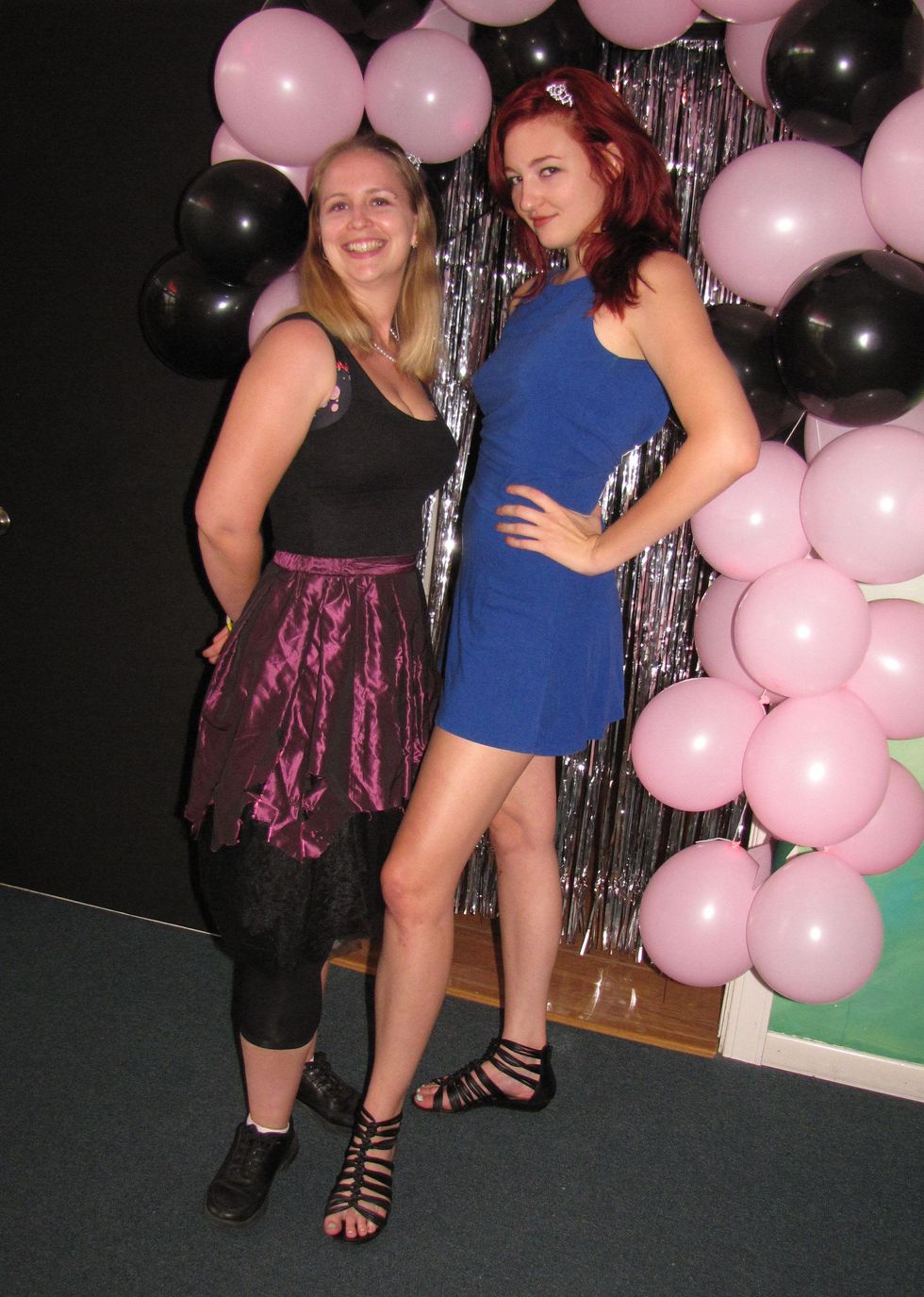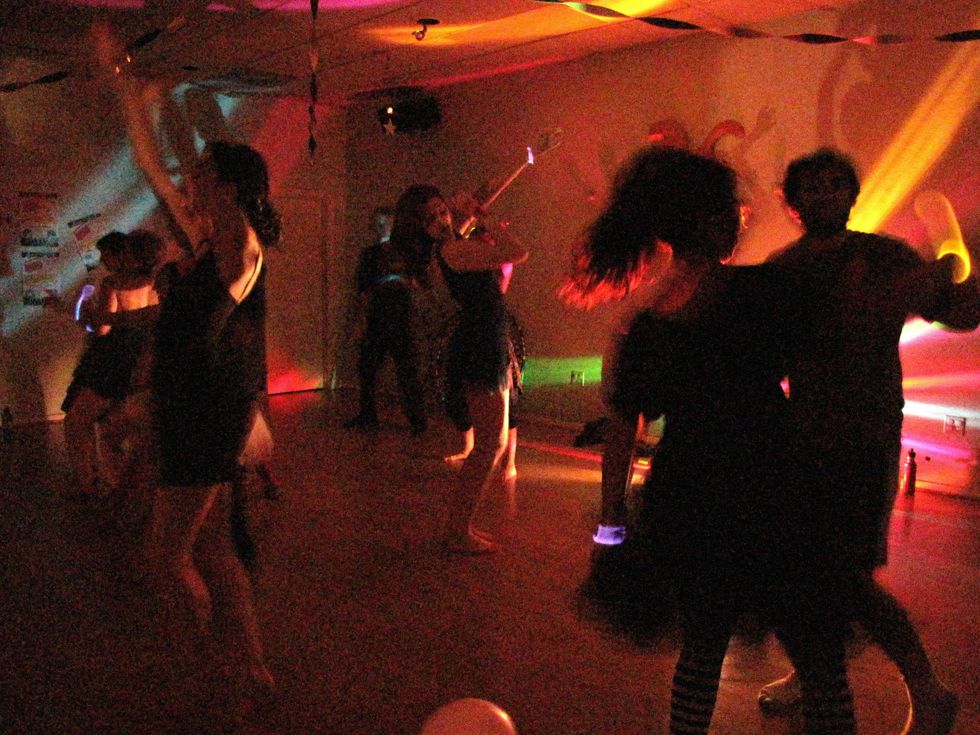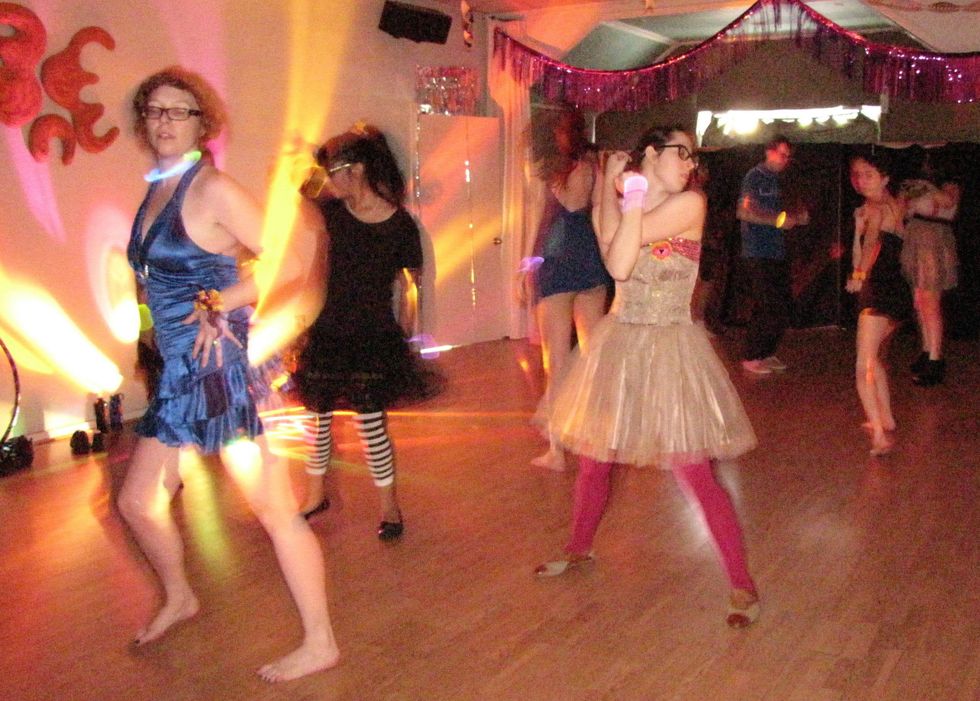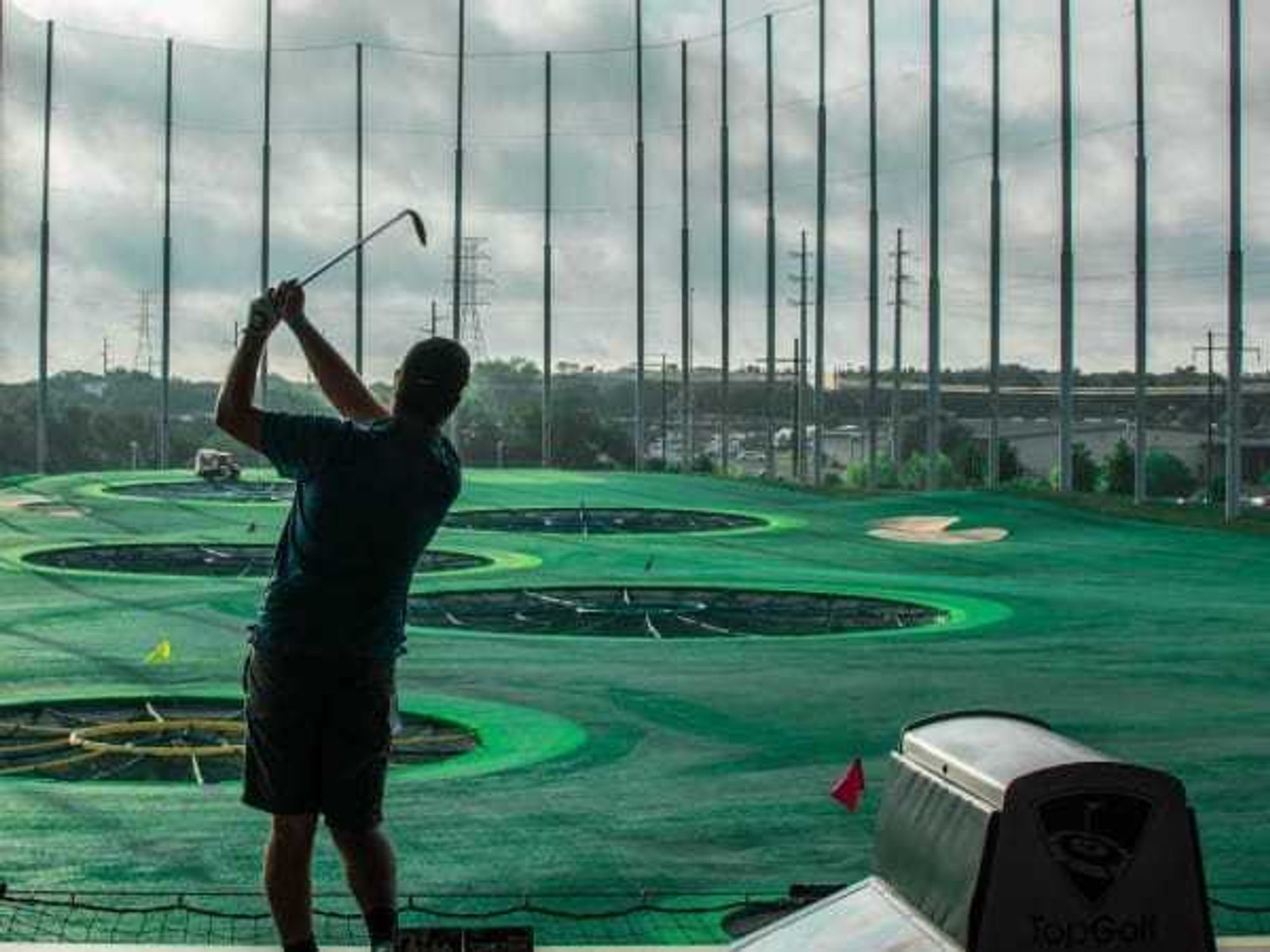Dance 'til ya drop
Dance Dance Party Party: No judgement, just killin' it
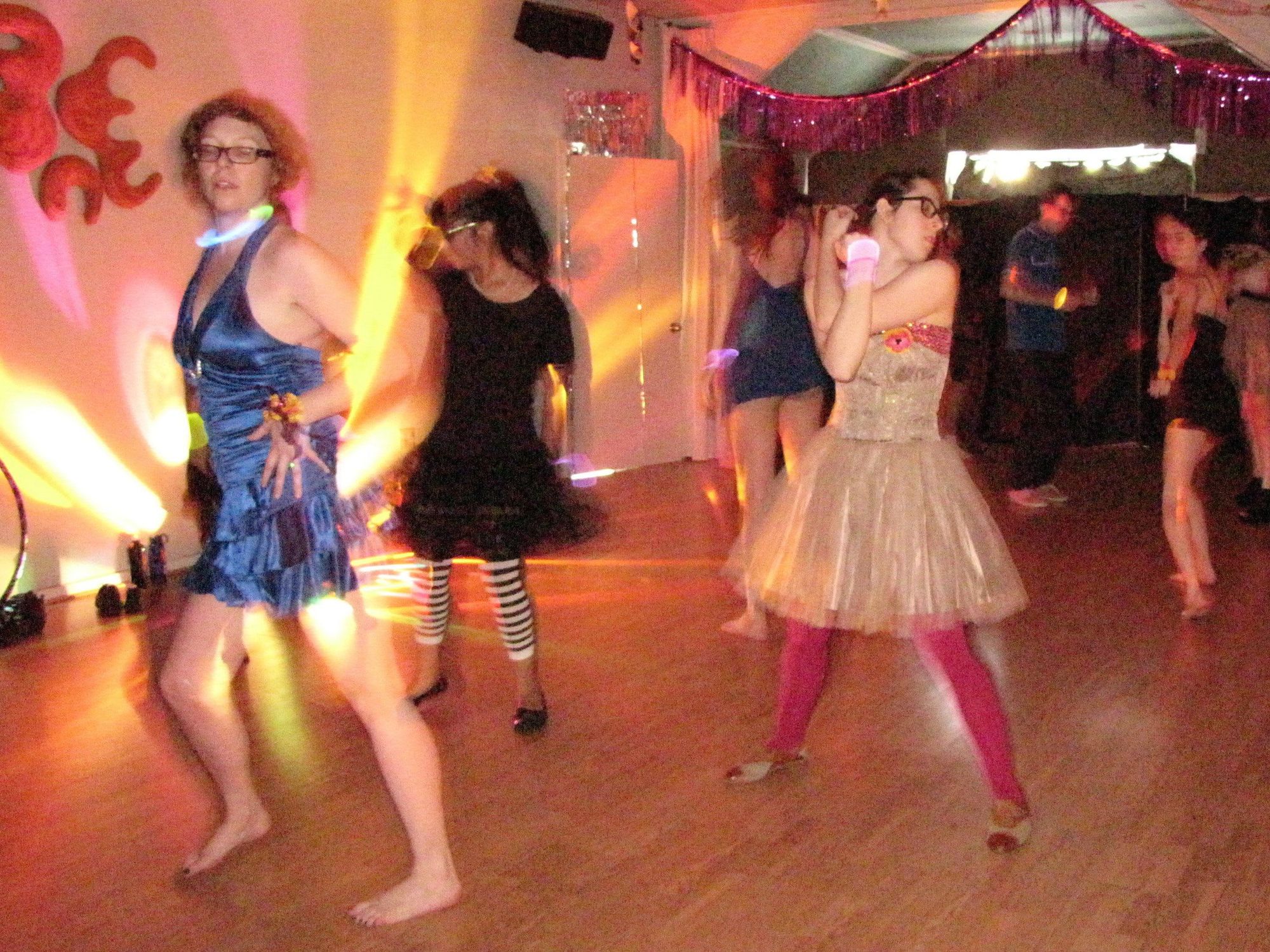
I stood in the dressing room, staring at myself in sparkly pink booty shorts. My butt looked like a disco ball.
“Get them,” Alissa said. “You need the pink.”
I did need the pink, as it turned out. It was March 2010, and Alissa and I were starting an Austin chapter of Dance Dance Party Party, and I very much needed the pink. Two years later, those booty shorts have become my uniform. When I don the booty shorts, I am no longer overeducated and underpaid, anxious about my job prospects and addicted to Hulu. I’m DJ EZ-Bake, and I shake my sparkly pink disco ball of an ass without fear or shame.
Dance Dance Party Party, or DDPP, is just a bunch of women meeting in a room to dance. That’s all. Every Sunday at 7:00 p.m., we gather in a rented studio space, where we turn the lights off, plug in a rotating disco ball, power up the stereo, and dance to a playlist provided by a different “DJ” every week. Conscience prevents me from providing an exhaustive list of our DJ names here, but I feel I can safely disclose that my co-organizer Alissa Zachary goes by DJ MILF.
I learned about DDPP when I was in graduate school in Chicago. During the long, soul-shriveling winters, it sometimes felt as if dancing in a darkened studio with a dozen other women was the only thing keeping me alive.
DDPP was created in 2006 by a couple of ingenious New York hipster chicks named Glynnis McMurray and Marcy Girt. Maybe “discovered” is a better word — after all, spazzing out with other ladies has been around since the invention of the slumber party. As adults, a lot of us still love dancing but don’t frequent clubs, for reasons that include cover charges, expensive drinks, and that one dude who keeps trying to convince us to go to another club where he knows the bartender. At Dance Dance Party Party, I get to thrash, jiggle, and bounce to earsplitting music without worrying that some guy will sneak up behind me and start undulating on my rump.
It’s also, incidentally, a good workout. For some attendees, DDPP is their favorite exercise; for others, it’s their only exercise. (Not me, of course. I’m totally talking about someone other than me.) Many of them wear workout clothes, but tutus are also well represented, as are sequins, halter tops, and, of course, booty shorts.
These days Charlotte Benbenek-Price, a 30-year-old nonprofit project manager and hula hoop enthusiast, prefers to wear comfy clothes to DDPP. But the first time Charlotte and her friend Rachel Youens DJ-ed, they wore rather daring outfits in silver and gold lamé, and most people still refer to them as DJ Silver and DJ Gold. “[Rachel] and I like to dance a lot and I would get tired of going out and dancing and getting bothered by guys. . . . The idea of a freeform dance class really appealed to me.”
I almost stop her to say that it’s not really a “class” because there is no instructor and no fitness goal, but I don’t. Despite its simplicity, DDPP is hard to describe; telling people about it, I find myself stumbling over words like “class,” “party,” “workout,” and “event.” The originators of DDPP came up with the handy catchphrase, “No boys. No booze. No judgment.” While this is an accurate statement of our core principles, it can make DDPP sound like a therapy session in a nunnery. Which, as anyone knows who has been there when “Flashdance (What a Feeling)” comes on, it most definitely is not.
Although it does have a certain therapeutic value. Charlotte mentions that she and Rachel like to add songs about female empowerment to the pop, techno, and ‘80s music on their mixes. For her, as for me, “no boys” is not about exclusivity or gender essentialism — DDPP welcomes anyone who considers herself female. It’s about creating a space for women to enjoy their bodies without worrying about the expectations and consequences that often accompany such enjoyment. As Charlotte puts it, “Part of dancing is also feeling attractive and the self-esteem that comes from that, feeling feminine and powerful. [At DDPP], I really feel like I can dance however I want without fear of being bothered.”
Tell me about it. “Juking” was not a part of my vocabulary before DDPP. Now it’s something I make an effort not to do at weddings.
Unless somebody plays Kid Sister. I’m only human.
DDPP’s second anniversary is coming up. For our first anniversary we bent our no-boys rule for a gender-inclusive prom, complete with balloon arches and boutonnieres. This year, we’re planning another big event: a karaoke birthday party. DDPPers will sign up to sing karaoke dance songs in the studio, followed by cake and ice cream. There’s nothing like watching yourself belt out “Bad Romance” in the mirror, surrounded on all sides by dancers who are honor-bound not to judge you.
A yoga studio draped with calming batiks is not the world’s most glamourous dance club. In the summer, we have to darken the room with a motley assortment of curtains and screens. The disco light is on its last legs; only one of its rotating balls works, and it makes a pitiful Wall-E sort of noise as it spins. Still, when those lights are flashing, and the speakers are booming, and my pink disco ball butt is bumping to the beat, it feels better than glamourous. It feels free.
Charlotte/DJ Silver sums it up. “I wear whatever I want, act however I want. It isn’t something that I feel like I can do anywhere else.” She pauses. “Except maybe dancing by myself at home. But that’s not as much fun.”
---
Dance Dance Party Party takes place every Sunday from 7:00-8:30 p.m. at Thrive Fitness (formerly NiaSpace), 3212 S. Congress. The cost per session is $5.
